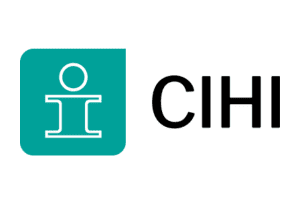Electronic medical records are great but paper still OK too.

Reprinted with permission from Days of Past Futures
As we hurtle towards the quarter century mark of the 21st century it is puzzling that use of electronic medical records (EMRs) by Canadian physicians is still not considered by provincial and territorial medical regulatory authorities to be the only standard for the acceptable provision of care.
There is currently an almost universal call for more sharing of medical data to improve individual and population health that is only realistically possible if records are stored electronically. It is also recognized that providing quality care can be enhanced if records are kept electronically. Yet all physician licensing authorities continue to state it is acceptable that physicians can keep records either on paper or electronically.
The discussion about whether use of EMRs should be the standard of practice for Canadian doctors has been going on for years, if not decades.
It’s interesting to look back two decades to when a debate about whether it should be mandatory for physicians (and other healthcare providers) to be part of e-health initiatives formed the centrepiece of the eHealth Conference held in Toronto in May, 2003 (this year’s eHealth Conference and Tradeshow will also be held in Toronto).
David Kelly, then a Victoria, BC consultant and one of the participants of the debate, noted that the uptake of electronic record use by physicians at the time was “disappointingly slow” with fewer than 10% of Canadian physicians using or planning to use some form of EMR. (Fast forward almost two decades to 2020 when almost 86% of all physicians and 96% of family physicians were using EMRs).
Dr. Michael Guerriere, then physician-in-chief for the Sunnybrook and Women’s College Health Sciences Centre in Toronto, argued in favour of physician involvement with electronic health records. He said using electronic records must be mandatory for physician to deliver a high quality of care and that there was a large emerging body of evidence providing proof the two were connected.
“We have no choice but to make this mandatory,” Dr. Guerriere said, pondering how physicians could be allowed to opt out and thus continue to offer substandard care.
Howard Waldner, then executive vice-president and COO of the Calgary Health Region, countered that mandating use of electronic medical records was “unrealistic and unachievable” and that policy makers needed to move away from the language of compliance and talk about incentives and effective change management strategies. Dr. William Sibbald, an Edmonton family physician said evidence of the benefits of electronic records was not yet sufficiently robust and that a powerful coalition with a shared vision was necessary to fully engage physicians.
As we know, what did happen over the next two decades was that provinces implemented programs at various times that incentivized physicians to adopt electronic medical records, but no jurisdiction made their use mandatory. However, the peer support and change management strategies mentioned by Dr. Sibbald in the debate often formed a large part of these programs.
To date, the College of Physicians and Surgeons of Manitoba (CPSM) is the only provincial licensing authority that refers to making the use of an EMR the standard of care.
In its standard of practice for the maintenance of patient records effective last February, the College notes:
CPSM recognizes the adoption by registrants of Electronic Medical Records (EMRs) compatible with the provincial government’s electronic medical records systems … significantly contributes to the provision of good patient care. While working with an EMR compatible with provincial systems has not yet been made a requirement in this Standard, CPSM considers this arrangement the current standard of care and it is expected that it will become a requirement pursuant to this Standard for all registrants when the Standard is reviewed again in or around 2026. In the interim, it is expected that all registrants will make efforts to adopt an EMR and establish links with provincial systems as soon as reasonably possible, if they have not already done so.
So, while there is much talk of connectivity and the benefits to physicians, patients and the system from use of electronic records physicians are still free to scribble or type their notes on paper making somewhat of a mockery of the shiny digital health future of which we hear so much.
Author: Pat Rich. Pat Rich is a medical and health care writer and editor and keen observer of the social media and health care world. This Article has been reprinted with permission from Days of Past Futures.




